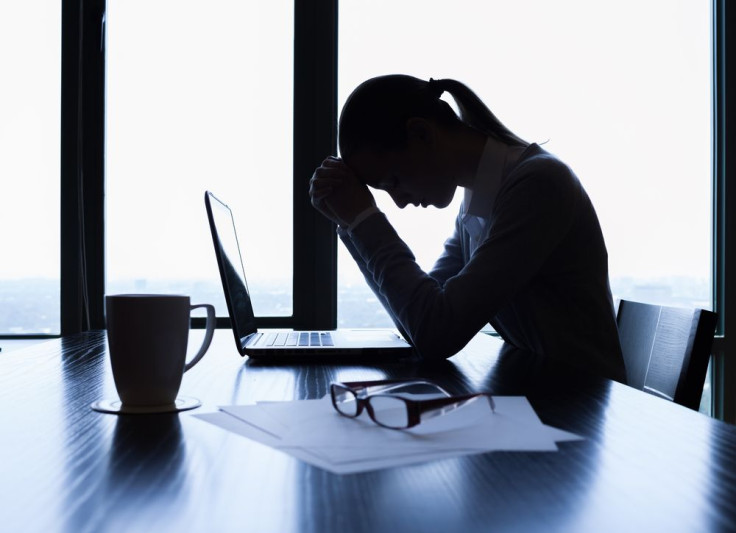Women With Top Jobs Often Face Depression, An Effect Of Workplace Adversity

Far too many people have looked at that Hollaback catcalling video and dismissed it on the grounds that women should be standing up for themselves — or some other argument that blames everyone but the man making the decision to objectify her. The fact of the matter is that women still aren’t on the same level as men in many aspects of life, and this includes getting mutual respect when walking down the street. They’re still getting paid less than men per dollar, according to more than one measure. All this adversity is hard to handle, even for those who can persevere, a new study finds. Women who held authoritative positions were likely to show signs of depression.
“Women with job authority — the ability to hire, fire, and influence pay — have significantly more symptoms of depression than women without this power,” said lead author Tetyana Pudrovska, assistant professor in the Department of Sociology at the University of Texas in Austin, in a press release. “In contrast, men with job authority have fewer symptoms of depression than men without such power.”
The research involved over 1,300 men and 1,500 women, all of whom were middle-aged, and looked at symptoms of depression as well as the level of authority they had in their workplaces.
Research has shown that women experience a wide range of problems in the workplace, from long hours to tension with colleagues to favoritism that leans toward men. It gets worse, however, for women who move up the ranks. Not only do they tend to be more qualified, but less likely to move up, but they are also more likely to experience resistance from subordinates and other colleagues, a result of constantly being doubted.
With all these factors working against them, it’s easy to see how women in these positions feel more depressed than their male counterparts. “What’s striking is that women with job authority in our study are advantaged in terms of most characteristics that are strong predictors of positive mental health,” Pudrovska said. “These women have more education, higher incomes, more prestigious occupations, and higher levels of job satisfaction and autonomy than women without job authority. Yet, they have worse mental health than lower-status women.”
Science has shown that women are more prone to ruminating, an activity that undoubtedly pushes the psyche down in a downward spiral toward depression. That’s why it takes a hard mental attitude, as shown by a University of Pennsylvania dissertation, in which its researcher found that women in positions of leadership “have a moderately pessimistic explanatory style” when it came to describing their views of women in the workplace. But even with these feelings, they were “confident” and had “high self-esteem.” They also showed the “ability to employ ‘flexible optimism’ when necessary.”
Women shouldn’t have to rely on this flexible optimism, which cancels out any negative thoughts, just to survive in the work place. Instead we should be empowering them to be as comfortable in their roles as men, thus increasing “the psychological rewards of higher status jobs.”
Source: Pudrovska T, et al. Gender, Job Authority, and Depression. Journal of Health and Social Behavior. 2014.
Published by Medicaldaily.com



























